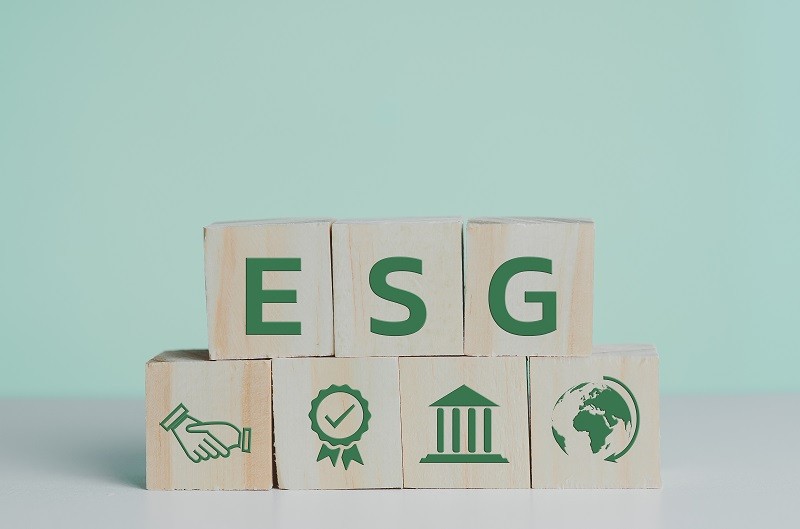by jiawen
Share
Share
Economic impacts of carbon taxes
So, how carbon taxes will impact businesses? When a company produces a high amount of carbon, it will result in higher tax payments and subsequently increase the overall prices of products. As a result, it may prompt businesses to assess and manage their operational carbon emissions as well as those resulting from their supply chains. In addition, the carbon pricing policies may have negative distributional impacts on households. This is because carbon costs incurred across the supply chain can be passed on to downstream stakeholders especially the final consumers through increased prices. This urges consumers to switch to energy-efficient alternatives in order to reduce energy consumption and lower utility bills.
What can businesses do to make progress on ESG?
In Singapore, companies are allowed to offset up to 5 percent of their carbon emissions with International Carbon Credits (ICCs). In a case where a carbon-intensive company is not able to reduce its emissions, the company can purchase high-quality, certified carbon credits from specific projects as a way to compensate for its carbon footprints and help the company meet its sustainability goals. For instance, Singapore-based heavy emitters like petrochemical companies can reduce their carbon tax liabilities through buying carbon credits from renewable energy developers in another jurisdictions.
As ESG performance is getting increasing attention from various stakeholders, all businesses including listed companies and small and medium enterprises (SMEs) should ramp up their sustainability efforts. To stay competitive, companies should conduct a proper ESG materiality assessment to identify the potential risks and opportunities associated with the ESG issues. Companies can also decide which reporting framework to be used and disclose their ESG performance based on the reporting standards. From there, companies should take consistent baby steps and track their own performance to ensure that their ESG strategies are robust enough to support the resilience of the business.
How We Can Help
While moving towards a more sustainable economy, Alder helps integrate the ESG framework into your business. Our services include:
- Assisting to set up ESG frameworks
- Providing support on ESG reporting
- Providing ongoing ESG advice and support
- Facilitating effective communication of the company’s ESG approach with internal and external stakeholders
- Reviewing and rating the existing governance framework
Reference Materials
Mohan, M., Koh, W. T. (2022). ‘Singapore to raise carbon tax after Bill passed in Parliament, WP’s proposals rejected’, CNA, 8 November. Available at: https://www.channelnewsasia.com/singapore/singapore-raise-carbon-tax-after-bill-passed-parliament-wps-proposals-rejected-3053876
Tan, A. (2022). ‘Budget 2022: Large emitters can buy carbon credits to offset carbon tax bill from 2024’, The Straits Times, 27 February. Available at: https://www.straitstimes.com/singapore/budget-2022-large-emitters-can-buy-carbon-credits-to-offset-carbon-tax-bill-from-2024
Wei, C., Kok, M. A., Tan, R. (2022). ‘What Singapore’s revised carbon tax means for companies’. Available at: https://www.southpole.com/blog/what-singapores-revised-carbon-tax-means-for-companies-carbon-strategies
The majority of today’s investors no longer focus solely on potential returns. Many now look beyond projections to understand how companies achieve their goals responsibly and sustainably. As a result, Environmental, Social and Governance (ESG) factors have become a key consideration in modern investment decisions.
With growing investor demand for transparency, more companies are publishing sustainability reports — yet many still face challenges with consistent ESG data and reporting standards. Fintech is stepping in to close these gaps. Through initiatives like MAS’s Project Greenprint, Singapore is leading the way in digital ESG reporting with platforms such as ESGenome and ESGpedia. As global frameworks like GRI and TCFD gain traction, companies are encouraged to view sustainability reporting not as a compliance task, but as a vital step toward achieving long-term resilience and net-zero goals.
Singapore is stepping up its climate action with a higher carbon tax and stronger green initiatives to drive decarbonisation. Businesses are now encouraged to manage their carbon footprint, explore carbon credits, and strengthen their ESG strategies. By taking proactive steps toward sustainability, companies can stay competitive while supporting Singapore’s transition to a low-carbon future.
Investors today increasingly prioritise companies with strong ESG practices. With growing awareness across all generations in Singapore, sustainability has become a key factor in investment decisions. Businesses that embed ESG into their strategies can enhance long-term value while contributing positively to society and the environment.





